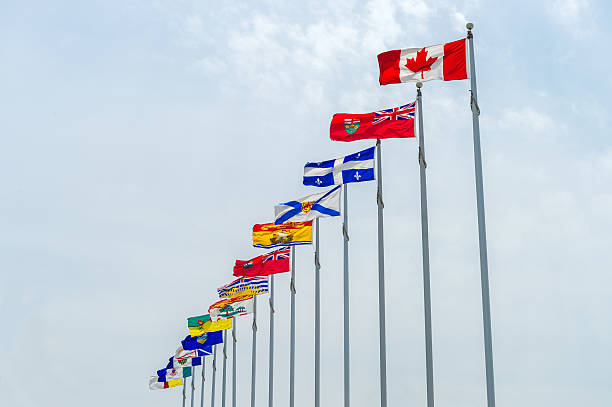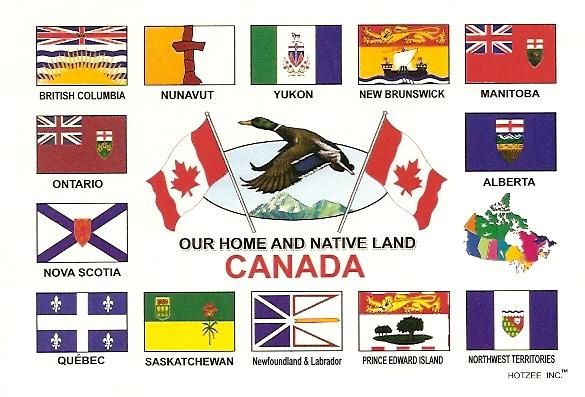
The Provincial Nominee Program (PNP) is a key immigration pathway that allows Canadian provinces and territories to nominate individuals who are interested in living and working in a specific region of Canada. By securing a nomination from a province, candidates can enhance their Express Entry (EE) profile and have a higher chance of obtaining permanent residency (PR). Here’s a step-by-step breakdown of how the PNP works:
1. Expression of Interest (EOI)
The first step is submitting an Expression of Interest (EOI) to the province where you want to live and work. Different provinces have different streams and criteria, but the goal is the same: to attract individuals who have the skills and experience needed in that province.
2. Provincial Nomination Application
If your EOI meets the province’s specific requirements and your points are high enough, you may receive a Letter of Advice to Apply (LAA) from the province. This letter invites you to submit a formal application to the province for a nomination. At this stage, there is typically a fee associated with the application process, which varies by province. For instance, Manitoba’s application fee is around $500 CAD (as of January 2024).
3. Federal Application via Express Entry
Once your application is approved at the provincial level, you will receive a nomination certificate. This allows you to enter the federal Express Entry pool with an additional 600 Comprehensive Ranking System (CRS) points, significantly increasing your chances of receiving an Invitation to Apply (ITA) for permanent residency. To proceed, you will need to pay federal application fees, which currently stand at $1,370 for a single applicant, $1,950 for a couple, and $250 for each dependent child.
It’s crucial to have all your documents ready before submitting the application, as delays can slow down the process. Processing times may vary from three to six months, or even longer, depending on the volume of applications received by Immigration, Refugees, and Citizenship Canada (IRCC).
4. Biometrics Submission
After submitting your federal application, you will receive an Acknowledgment of Receipt (AOR) via email. If additional documents are required, you will need to provide them promptly. Once the IRCC is satisfied with your application, you will be issued a Biometrics Instruction Letter (BIL) if you haven’t already paid for biometrics during your application submission. Biometrics involve fingerprinting and photo capturing, and in Nigeria, they are conducted at Visa Application Centres (VAC) in Lekki, Lagos, or Abuja. Completing biometrics brings you closer to the final stages of your immigration process.
5. Medical Examination
At this stage, you will also need to undergo a medical examination to ensure that you meet Canada’s health standards. This examination can be done at an approved panel physician clinic, such as the International Organization for Migration (IOM) in Ikeja, Lagos. Your medical results will be forwarded directly to the Canadian government. You may opt to complete the medical examination early (upfront) to help expedite your application processing.
6. Passport Submission for Visa
Once everything has been reviewed and accepted, you will receive a passport submission request. This is essentially the final step before receiving your visa, meaning you are nearly ready to travel to Canada!
Key Requirements for Applying to PNP
Two essential factors determine your eligibility for PNP:
- Language Proficiency: You must demonstrate English or French proficiency, typically through the IELTS or CELPIP exams. CELPIP is available in Lagos and is fully computer-based. While some people find it easier than IELTS, it’s up to personal preference.
- Sponsor or Connection: Many provinces prefer applicants with a connection to the province, such as a family member or friend who is a permanent resident or citizen living there. For instance, if you apply to Alberta but have a sponsor in British Columbia, your application might be rejected due to lack of connection with Alberta.

Provinces That Offer PNP Nominations
Several provinces participate in the Provincial Nominee Program, including:
- Alberta
- British Columbia (BC)
- Manitoba
- New Brunswick
- Newfoundland and Labrador
- Northwest Territories
- Nova Scotia
- Ontario
- Prince Edward Island (PEI)
- Saskatchewan
- Yukon
Each province has its own nomination streams, so it’s important to research and choose the province that aligns with your skills and qualifications.
Advice: Choose Less Populated Areas
It is advisable to avoid expressing interest in larger, more competitive provinces such as Ontario, British Columbia, or Quebec unless you are specifically targeting less populated areas within these regions. Smaller provinces or rural areas often have less competition and may be easier to secure a nomination from.
For instance, Saskatchewan recently introduced a skilled worker program due to a shortage of labor in the agriculture and healthcare sectors. This provides a great opportunity for applicants who can secure job offers in these industries.
Final Thoughts: Do It Yourself!
Navigating the PNP process can be challenging, but it is entirely possible to do it yourself without hiring an agent. This will save you significant costs and ensure that your application is accurate and reflects your true qualifications. While the process may seem rigorous, the reward is well worth the effort—successful applicants can start a new life in Canada, contributing to its growing economy and enjoying its high quality of life.
If you’re prepared and organized, you can manage the entire process from start to finish. Good luck on your journey to becoming a Canadian permanent resident!
